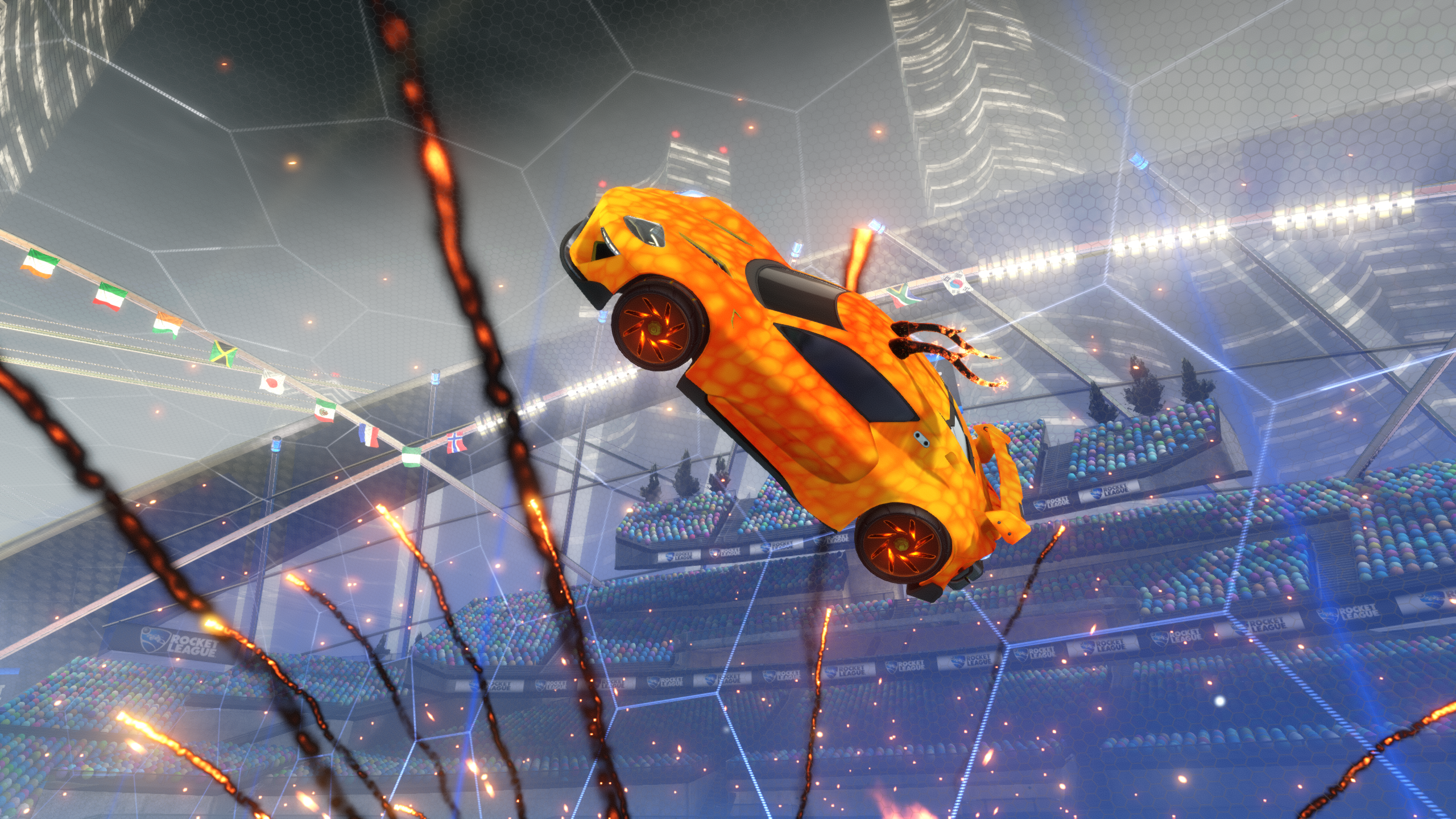RIP Rocket League economy: player-to-player item trading is being removed in December
The change will bring car soccer into alignment with "Epic's overall approach to game cosmetics and item shop policies."

Come December, Rocket League players will no longer be able to trade cosmetic items with each other: "Player-to-Player Trading will be removed from Rocket League on December 5 at 4 pm PST," developer Psyonix announced today.
The instantly unpopular decision (I'd characterize the response so far as "why tho???") will bring Rocket League into alignment with "Epic's overall approach to game cosmetics and item shop policies, where items aren't tradable, transferrable, or sellable," says the developer, which was acquired by Epic Games in 2019.
Rocket League's item economy used to be more like Counter-Strike's: The best stuff came in loot boxes which could be opened with keys, a premium item that also became the commodity used as money in player trades. After Epic bought Psyonix, it retired the crate and key system. Crates are now free to open, but rather than items they contain blueprints for items which can be crafted by spending Credits, the new premium currency. Psyonix also introduced an Item Shop, where a rotating selection of cosmetics can be directly purchased for Credits.
Player-to-player trading lost some of its significance with the switch to blueprints, but players have continued to acquire rare items through trades, mainly using fan-made website Rocket League Garage to find and coordinate transactions.
"It was a pleasure," wrote Rocket League Garage founder Vicegold in response to a Reddit poster preemptively memorializing the website. The operators of the website, which has its own mobile app, did not know that this announcement was coming.
"After December 5, there will be no way to trade items with any player or between accounts," reads Psyonix's statement. "Websites or servers advertising such services are fraudulent and have no connection to Psyonix or Epic Games."
The developer's brief FAQ on the change also warns players that if they "lent" an item to another player, they won't be able to get it back after the trading system is removed.
Keep up to date with the most important stories and the best deals, as picked by the PC Gamer team.
"[Lending is] not supported by Psyonix and all trades are considered final," it reads. "Our support team cannot help reverse trades."
Rocket League's switch from crates and keys to blueprints and Credits was somewhat unpopular, but the decision was to me convincingly justified by the broad anti-loot box sentiment at the time, which included threats of legislation and also led Epic to change Fortnite's loot box system. It's less clear why Rocket League's player-to-player trading has to go.
Counter-Strike's item marketplace is a certified controversy generator. It continues to operate on a loot box system, and its rarest skins attain improbably high values—we just saw a streamer bag $30K worth of gun skins on day one of Counter-Strike 2's launch, and back in April, a single CS skin sold for $400K. The biggest resulting controversy was the rise of third-party "skin gambling" sites that let players bet their genuinely-valuable Counter-Strike skins on esports matches, which among other things got Valve in trouble with government regulators.
But the Rocket League marketplace has been a lot chiller than all that. Other than the usual tales of shady dealers who'll try to trick you into making a bad trade, I haven't heard about any major Rocket League trading drama. The announcement only says that this change brings Rocket League in line with a pre-existing Epic Games policy about in-game items, and that it "opens up future plans for some Rocket League vehicles to come to other Epic games over time, supporting cross-game ownership."
Epic declined to elaborate on its policy at this time.

Tyler grew up in Silicon Valley during the '80s and '90s, playing games like Zork and Arkanoid on early PCs. He was later captivated by Myst, SimCity, Civilization, Command & Conquer, all the shooters they call "boomer shooters" now, and PS1 classic Bushido Blade (that's right: he had Bleem!). Tyler joined PC Gamer in 2011, and today he's focused on the site's news coverage. His hobbies include amateur boxing and adding to his 1,200-plus hours in Rocket League.

